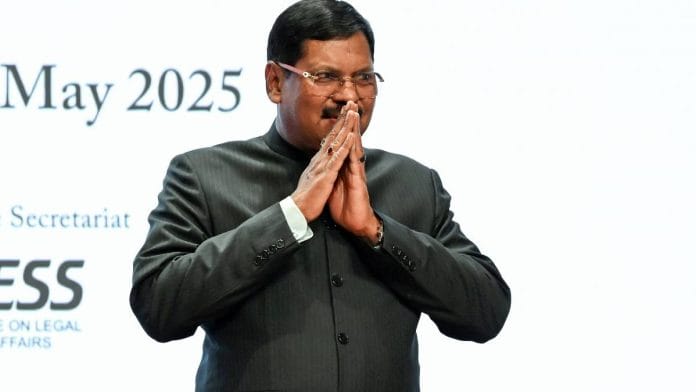New Delhi: The practice to interview candidates being considered for high court judgeship will continue even after Justice B.R. Gavai takes over as head of the Supreme Court collegium that selects advocates for elevation to the bench, upon being sworn in as the next Chief Justice of India later this week.
Justice Gavai will take oath as the 52nd Chief Justice of India (CJI) Wednesday. He is the first Buddhist practitioner to hold the post and the second Dalit, after former CJI K.G. Balakrishnan, to hold the top judicial post in India.
Justice Gavai will take over the reins from outgoing CJI Sanjiv Khanna, who currently heads the three-member collegium that decides on high court judges. Besides Justice Gavai, Justice Surya Kant, who will assume the CJI’s office following Justice Gavai’s retirement in November-end, too is a collegium member.
Apart from continuing with the interview practice, Justice Gavai in his six-month tenure will push for appointing more women lawyers as high court judges.
“High courts have been asked to look for eligible women lawyers for elevation to the bench. They have also been told that if women advocates are less in numbers, then the high courts should find suitable candidates from among the women lawyers practising in the Supreme Court, who hail from the state where the appointment is to be made,” he said.
Being a first-generation lawyer, Justice Gavai is keen to encourage young advocates, who do not have a family lineage in the legal profession, for judgeship.
He, however, denied that there is nepotism in the judiciary and said data released by the Supreme Court on judges appointed to high courts in the last two years proves the same.
He explained that if a judge’s child is meritorious, then he or she should be given an opportunity to become a judge. However, for such a person, he added, the benchmark can be higher compared to those who have no relations in the judiciary.
Acknowledging that the representation of backward castes and classes in the judiciary is low, Justice Gavai was, however, of the opinion that in the name of inclusivity and diversity, merit should not be compromised. “Merit cannot be ignored,” he said firmly.
On taking office, he said he would focus on clearing all cases, particularly those that raise important public issues such as freebies offered by political parties, pending in the court.
(Edited by Nida Fatima Siddiqui)
Also Read: SC wants a relook at its own 2017 judgement on process of designating senior advocates







Indian judiciary is in the stranglehold of a few elite legal families. Only members of these families can expect to become High Court and Supreme Court judges.
Am I eligible to apply?
Or do I have to be a relative of some ex or sitting judge of the High/Supreme Court?
Request Justice Gavai to clarify.